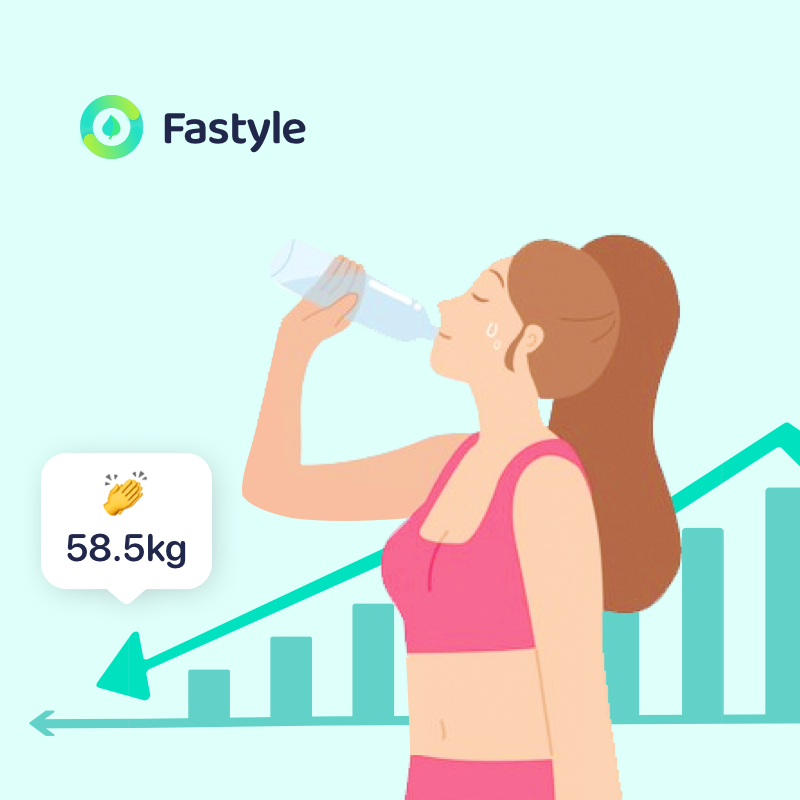Energy drinks, also called sports drinks, are so widely seen and consumed now. Marketed as zero-calorie or sugar-free, energy drinks have been regarded to be healthy and friendly to weight loss. However, is that true? Can energy drinks be drunk while intermittent fasting? Let’s dig into it with this article.
Why are Energy Drinks Regarded to be Healthy and Friendly to Weight Loss?
Energy drinks are usually consumed by sports people because they supplement electrolytes, sodium, sugar and water that are usually released through sweating in the process of sports.
The leading electrolytes include sodium, potassium, magnesium, calcium, phosphate, chloride and bicarbonate among which sodium, potassium and magnesium are the easiest to be lacked in human body after sports.
- Sodium supports the balance of isohydric and helps to activate nerve impulses. Sodium is contained in sodium chloride.
- Together with sodium, potassium adjusts blood pressure and supports the balance of isohydric and it is contained in fresh fruits and vegetables.
- Magnesium helps to build muscles, optimize mood and ensures bone health and it is dramatically contained in green vegetables.
Moreover, most energy drinks market themselves to be zero-calorie and zero-fat, which also leads people to believe energy drinks are beneficial to human body and won’t bring forward weight gain. Therefore, energy drinks are always labeled as healthier than other drinks like soda, cola, smoothies, sweet tea, etc.
Apart from Electrolytes, What Else is Contained in Energy Drinks?
Apart from electrolytes, energy drinks also contain the following ingredients that may bring forward harm to human body if too much is consumed.
Caffeine
Energy drinks contain caffeine but differs from drinks to drinks. The caffeine in energy drinks helps people rebuild their energy and boost brain functions so that people can quickly recover their energy for sports.
However, too much caffeine intake will bring forward negative effects to human body like palpitations, tremors and agitation. Therefore, the caffeine contained in energy drinks should be carefully inspected to make sure it is within a safe range.
Sweeteners
Although most energy drinks market themselves to be free of sugar and they really do, it fails to 100% sure no sweeteners are contained in them. Sweeteners tend to cause people to suffer from diseases like obesity, high blood sugar and diabetes. If a type of energy drinks label to be sugar free in its ingredients but tastes sweet, you should make sure where the sweet taste comes from.
A High Content of Sodium
Just as is beforementioned, sodium is one of the most important electrolytes human body calls for but too much intake of sodium will possibly cause diseases like high blood pressure, strokes, etc.
Artificial Additives
Artificial additives are added to energy drinks or any drinks to increase their taste or prolong their shelf lives. For either reason, it’s not acceptable to consume too many artificial additives because they are bad for health.
Will Energy Drinks Break a Fast?
In one word, energy drinks are NOT suggested during your fasting window.
Energy drinks may be betrayed by their ingredients table.
It’s mostly possible for energy drinks to cover ingredients that are unneeded or bad for human body like caffeine, sweeteners, high content of sodium, etc. Therefore, make sure the ingredients of energy drinks have been carefully read before you’re ready to drink it. If an energy drink contains ingredients you’re unclear about their effects to your body, just avoid it because the ingredients may break your fast.
Sports drinks are only suggested as you do sports.
Energy drinks are created for people to supplement energies as they do sports. Therefore, it’s best to drink them as you do sports because most of the time, your body won’t suffer from situations when you are dehydrated or lacking in electrolytes. Moreover, sports differ from each other and only aerobics exercise for more than 1 hour will cause you dehydrated or electrolytes lacking.
What Can You Drink during Intermittent Fasting?
There are multiple healthy drinks you’re allowed to drink during fasting window.
Water
Water is the top healthy drink for all people. When it comes to intermittent fasting, water intake will make you feel full to avoid consuming foods and some experienced fasters conform to water fasting as a diet plan.
Black Coffee
Coffee works with intermittent fasting as long as no sugar, milk and sweeteners are added to it. Black coffee makes fasters to feel full and is beneficial to accelerate metabolism.
Tea
Herbal drinks are natural drinks friendly to intermittent fasting. Any type of tea is suggested as long as no sugar, milk and sweeteners are added to it. Tea is beneficial for weight loss.
Lemon Water
Lemon water is tasteful and nutritious with vitamins. It’s easy to make and friendly for intermittent fasting. In addition, it helps to stop dehydration and a leading source of minerals.
Apple Vinegar
Apple vinegar makes fasters feel full but the intake amount should be controlled and it should be diluted in much water.
FOLLOW US
Related Articles
